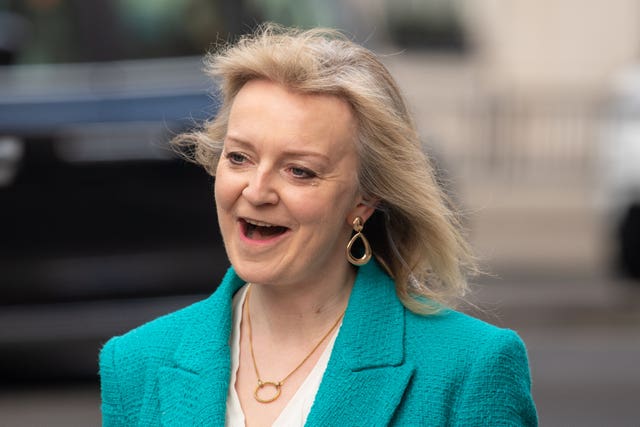
Shelagh Fogarty 1pm - 4pm
21 May 2021, 14:24

Reports suggest Boris Johnson is preparing to offer Australia a 15-year transition to a zero-tariff, zero-quota trade pact.
Boris Johnson said farmers will have a “fantastic opportunity” as part of free-trade deals, as reports suggest the UK Government is on the verge of signing a post-Brexit agreement with Australia.
Downing Street said “negotiations are still ongoing” with Canberra, despite several reports claiming ministers on Thursday had resolved their differences over the terms of a deal.
There had been concerns – said to have been aired around the Cabinet table by Environment Secretary George Eustice and Chancellor of the Duchy of Lancaster Michael Gove – about the impact a zero-quota arrangement with Australia could have on British meat produce, particularly beef and lamb, which has to reach higher standards.
But The Sun reported that the Prime Minister is set to offer Australia a 15-year transition to a zero-tariff, zero-quota trade pact, with the free trade arguments of International Trade Secretary Liz Truss and Business Secretary Kwasi Kwarteng being successful.
The Prime Minister, asked about the prospective deal on Friday, said he wanted the UK to “see these new openings not as threats but as opportunities” as he praised the benefits of free trade.
Speaking to broadcasters in Portsmouth, where he was visiting the HMS Queen Elizabeth II aircraft carrier, Mr Johnson said: “We are certainly looking at doing free trade deals with countries around the world, and I’m here on this incredible aircraft carrier, which is really a symbol of the way we want to do things – we see a global future for this country.
“I do think that free trade deals present a fantastic opportunity for our farmers, for businesses of all kinds, and for manufacturers.
“I think it is vital that as a great historic free-trading nation that grew to prosperity thanks to free trade, and thanks indeed to the Royal Navy, that we see these new openings not as threats but as opportunities.”
Mr Johnson chaired a meeting of senior colleagues on Thursday as he looked to solve the alleged dispute between Ms Truss and Mr Eustice.
Ms Truss, who has said she wants an agreement in principle by early June – which would come in time to parade it at the G7 meeting in Cornwall – is thought to favour a zero-tariff, zero-quota approach in order to boost the flow of trade.
But such a move could leave British farmers vulnerable to competition from beef and lamb producers in Australia, and Mr Eustice has suggested that quotas could be used to protect them.

Justice Secretary Robert Buckland gave reassurances to farmers that they would not be “undercut” as part of a deal with Canberra – which No 10 also repeated.
“The Government has always said that any free trade agreement reached with Australia or indeed other countries around the world… will of course take into account the very high welfare standards we apply here in the UK and will of course make sure British farming and British farmers are not undercut, are not put at a disadvantage, bearing in mind the quality and excellence of the products which are made here in the UK,” Mr Buckland told BBC Radio 4’s Today.
A spokesman for the Prime Minister, who said talks were ongoing, told reporters: “We’ve been clear that any deal with Australia must work for British businesses, producers and consumers, and we’re negotiating on that basis.”
A zero-tariff deal could put Mr Johnson on a collision course with the incoming leader of the DUP, who said there was a “high risk” to Northern Irish farmers, as well as the rest of the UK, if such terms were agreed.
Edwin Poots, Northern Ireland’s agriculture minister, who will take over as DUP leader from Arlene Foster, said: “Australia has a number of distinct advantages over Northern Ireland and the rest of the UK, in terms of the land available for farming, climate and lower standards, that allows its farmers to be able to produce at a considerably lower cost, particularly in the beef and sheep sectors.
“Consequently there is a lot of potential for Australian beef and sheep exports to the UK to expand substantially over time if tariffs are eliminated.
“Australian beef and sheep products have the potential to undercut UK producers and to reduce Northern Ireland’s market share in GB, which is our most important market for these products.”